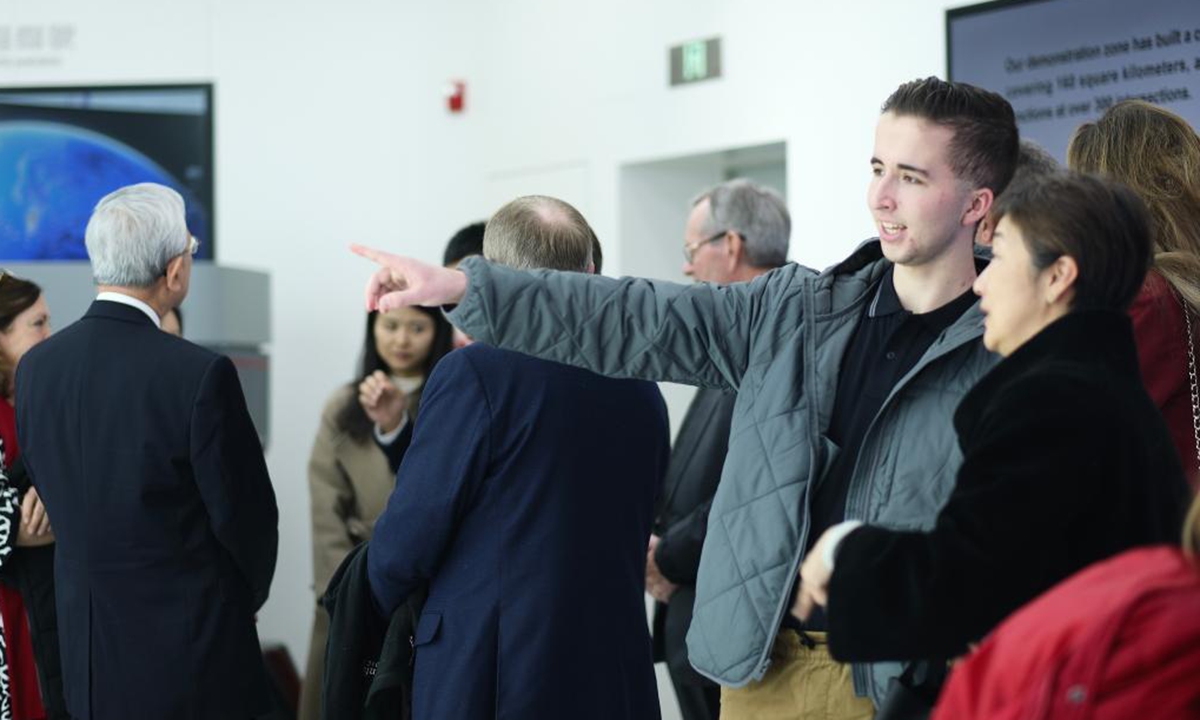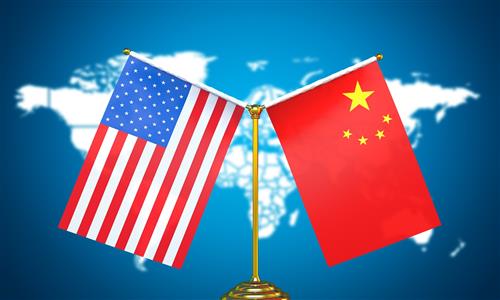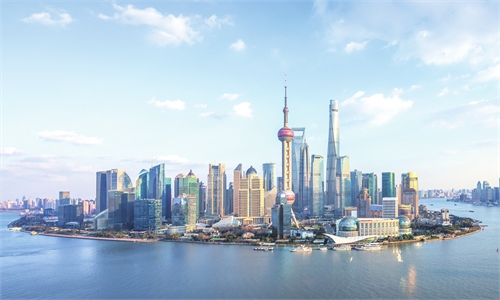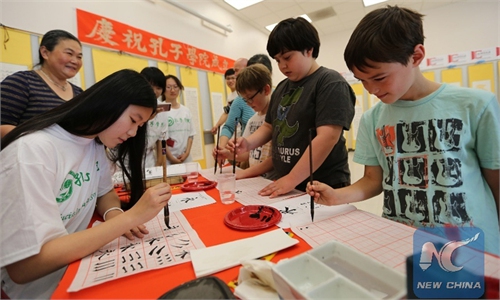China-US academic exchanges need to act as guardrail amid the strategic competition

Peyton Shields, a U.S. high-school student visits Beijing High-level Autonomous Driving Demonstration Zone in Beijing on Jan. 8, 2024.(Photo: Xinhua)
On Wednesday, eight scholars from various Chinese and US universities gathered at Schwarzman College of Tsinghua University to discuss the road ahead for China-US academic exchanges.
Most of the participants of this event have gained numerous wonderful memories on the road of academic exchanges, and these experiences have also shaped and influenced their academic careers. When we look back on our academic exchange experiences in foreign countries, it is the fragments of real-life experiences that leave the deepest memories, and this feeling can only be truly experienced when we are there, one participant from the US side said.
Now, when we re-examine the current stage of China-US academic exchange, we find that it has already been overshadowed by dark clouds and numerous obstacles. In the 2022-2023 academic year, only a few hundred American students and scholars came to China. The number of Chinese undergraduate students enrolled in US universities in 2022 also decreased. In recent years, due to the COVID-19 pandemic and the escalation of China-US strategic competition, academic exchange and cooperation between the two countries have been severely impacted. Especially during the Trump administration, the US introduced a series of policies in the name of national security, greatly undermining the environment of China-US academic exchanges.
In 2020, I was studying for a doctoral degree at Peking University. According to the academic training plan, I was supposed to go abroad for a one-year study visit in the autumn of that year. Before the Christmas holiday in 2019, I had already contacted a professor from Georgetown University and received an invitation letter. However, at the beginning of 2020, the COVID-19 pandemic suddenly broke out, and the visa application had to be temporarily postponed. After a few months, the news I received was that then-US president Trump announced a ban that suspends a number of popular non-immigrant visas, including the exchange visitor program's J visa. The introduction of this policy meant that my plan to visit the US for academic purposes was basically impossible at that time. In the end, I had to reapply to the University of Oxford and finish my one-year study visit there.
My experience is just one of many that highlight the challenges faced in China-US academic exchanges in recent years. However, it is crucial for the path of academic exchanges between the two countries to be restored. Since the establishment of diplomatic relations between China and the US in 1979, universities and research institutes from both countries have collaborated in education and scientific research, working together to enhance the prosperity of their respective countries and foster friendship between their peoples. Despite the current structural conflicts and the difficulty in resolving them, as well as the long-term strategic competition, academic exchanges between universities and scientific research institutes remain a vital pillar in stabilizing bilateral relations.
Since last year, scholars from both China and the US have been calling for the resumption of academic exchanges between the two countries. At the 5th International Forum on Security and Strategy in March in Beijing, a number of US scholars made their first visit to China since the COVID-19 pandemic. In September, Leo Rafael Reif, former president of Massachusetts Institute of Technology, published an article in Foreign Affairs entitled "American universities shouldn't cut all ties with China", highlighting "the value of having universities work together in research and education" between the two countries. China and the US have increased official exchanges since the meeting of the two heads of state in San Francisco in November, and people-to-people exchanges, including in the academic sphere, have recovered to some extent.
At the beginning of 2024, the leaders of China and the US exchanged congratulatory letters on the 45th anniversary of the establishment of diplomatic relations between the two countries. Liu Jianchao, the head of the International Department of the Communist Party of China Central Committee, recently visited the US and had friendly conversations with people from various fields. We believe that, eventually, China-US academic exchanges will get back on a healthy track. Just as the Chinese and American scholars all agreed at the Wednesday event at Tsinghua, we should make China-US academic exchanges a guardrail amid the strategic competition.
The author is a research fellow at the Center for International Security and Strategy of Tsinghua University. opinion@globaltimes.com.cn



